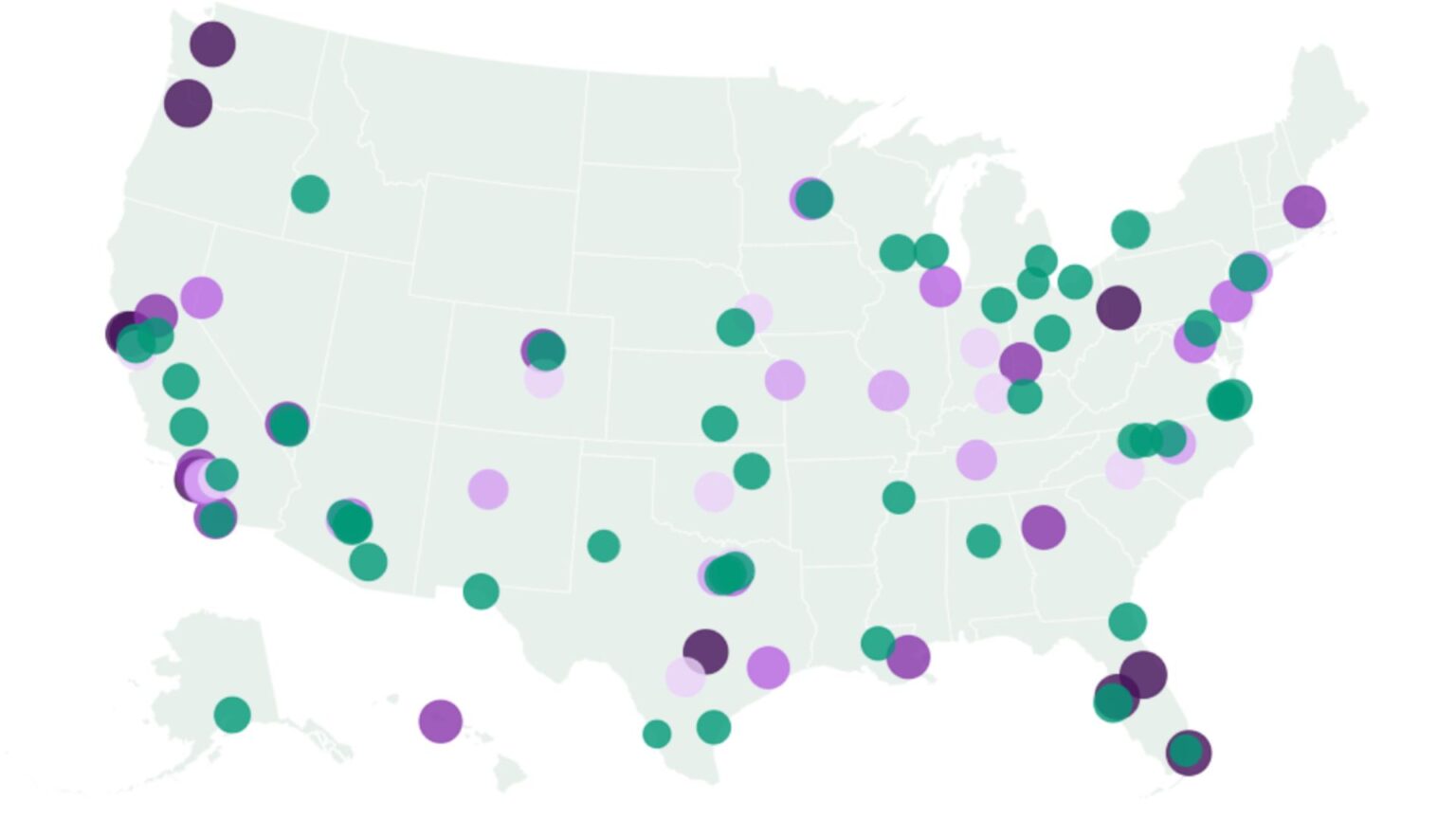New data released by the personal finance company WalletHub has revealed some of the best—and worst—cities in America for coffee lovers.
Portland in Oregon was ranked as the best city for coffee drinkers in America by WalletHub, because of its high number of affordable coffee shops, many of which also offer Wi-Fi.
Why It Matters
Coffee prices in the U.S. have been soaring this year, reaching record highs. This is down to a number of factors, including President Donald Trump’s tariffs, as well as climate change making conditions harder for farmers to grow coffee worldwide, reducing crop yields.
Coffee culture is huge in America, with adults across the country drinking a total of more than 500 million cups a day, according to CNN.
However, as prices continue to rise, consumer patterns could begin to change.
What To Know
Orlando in Florida was the second highest ranked city for coffee drinkers, according to WalletHub’s data, because of the fact it hosts coffee fest events and has a high number of affordable coffee shops.
Long Beach in California was ranked third, for its high number of coffee shop options, may of which have Wi-Fi.
A large proportion of residents in these three states were also found to be coffee enthusiasts, owning their own personal coffee machines, and spending large amounts on coffee each year. Long Beach also had a high rate of residents searching for the term “coffee” in Google.
At the other end of the rankings, Charlotte, in North Carolina, Omaha, in Nebraska, and Colorado Springs, in Colorado, were the three states identified by WalletHub data as some of the worst cities for coffee drinkers.
While these cities ranked lowest overall, they did not necessarily rank lowest on key metrics, such as average price per pack of coffee, percentage of adult coffee drinkers, and number of affordable coffee shops per capita.
Cities having affordable prices and shops is becoming increasingly important, as coffee lovers are being confronted with record high prices this year.
“We’re really looking at record high prices for this commodity, and I think that the combination of weather volatility and climate change, tariffs, and then the lower crop yields globally is why we’re seeing prices go up,” Paige West, a professor of anthropology at Barnard College and Columbia University, told Newsweek.
“I’m not sure that we can think about a single city in the U.S. that’s been more or less affected. I think it’s important to say that the entire market has been affected,” she added.
To get the rankings, WalletHub compared the top most populated cities in the U.S. across 12 key metrics, each with a different weighting in the total overall score of 100.
Metrics included, for example, average price per pack of coffee or per cappuccino, average household spending on coffee, share of adult coffee drinkers, and number of affordable coffee shops per capita.
The data was collected as of August 20, 2025 from various sources including U.S. Census Bureau, Council for Community and Economic Research, U.S. Bureau of Labor Statistics and others.
What People Are Saying
West told Newsweek: “I think coffee is an important part of global third space culture. People talk about there being multiple spaces of social and civic engagement, and third spaces are spaces where they’re not at work and they’re not at home, and so they are spaces where people can have social connections that are not in those two other spaces.”
She added: “In the U.S. in particular, I think for a lot of people, those third spaces used to be bars and I think there’s a transformation happening in American society especially with people in their twenties where they’re not spending as much time in bars and they’re spending more time in coffee shops.”
She said: “I think also the transition from people working full time in offices to people working in a more flexible way means that people have had to find these third spaces outside of their home and outside of the office where they can do their work, and coffee shops are really important in that way.”
What Happens Next
As climate change continues to shift weather patterns, having ripple effects across the planet, “I believe that the kind of ecological changes that we’re seeing right now are going to affect coffee in the near and far future,” West said.
West, who conducts research in Papua New Guinea, said that the Oceania country relies on coffee as “the backbone of the rural economy,” meaning that the change in coffee prices, which has a knock-on affect on how much coffee people consume, “is going to affect growers.”
Read the full article here

